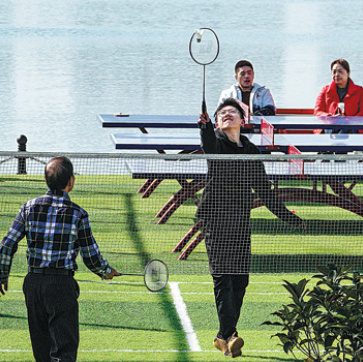The time of our lives


At the end of the 1970s, Li, a senior middle school graduate, became an agro-technician, promoting agricultural knowledge in villages and treating plant diseases and pests. Proverbs were still helpful, but farmers gradually turned to science and technology to prepare for changing weather.
However, for Chinese people, the solar terms go far beyond daily practices that have evolved into customs, especially for festivals. For example, on Tomb Sweeping Day, or Pure Brightness, it is a tradition for Chinese people to visit and clean family grave sites to commemorate their ancestors.
Since each solar term reminds people of different views, practices and feelings, they naturally have become the subjects of writers and poets, engraved deeply in the Chinese cultural gene.
For example, Du Fu, a great poet from the Tang Dynasty (618-907), wrote in a poem Yueye Yi Shedi (Missing My Brothers on a Moonlit Night): "Rolls of war drums break people's journey, a wild goose honks above this remote place. Dew turns white since tonight, the moon viewed at home is more bright". He wrote the poem on the White Dew, when wild geese start flying from the north to the warmer south for the coming winter.
When ancient Chinese people saw a different view, they would know it was a certain time of the year. A falling leaf heralded autumn, a cricket at one's house suggested it was Minor Heat, and tigers usually mated during the last five days of Major Snow.
"Chinese calendric culture reflects ancient people's love for life and the world," said writer Wang Meng, in a conversation with Xu Lijing that was collected in Xu's book Ershisi Jieqi Qishi'er Hou (Twenty-four Solar Terms and Seventy-two Phenological Signals), published in January.
Yu Shicun writes in the prescript of his book Shijian Zhishu (Book of Time) that the solar terms display Chinese people's wisdom and are an empirical demonstration of the relationship of "being and time". Chinese people use the solar terms not only to instruct life and work, but also to reflect on their moral courage or behavior.



































